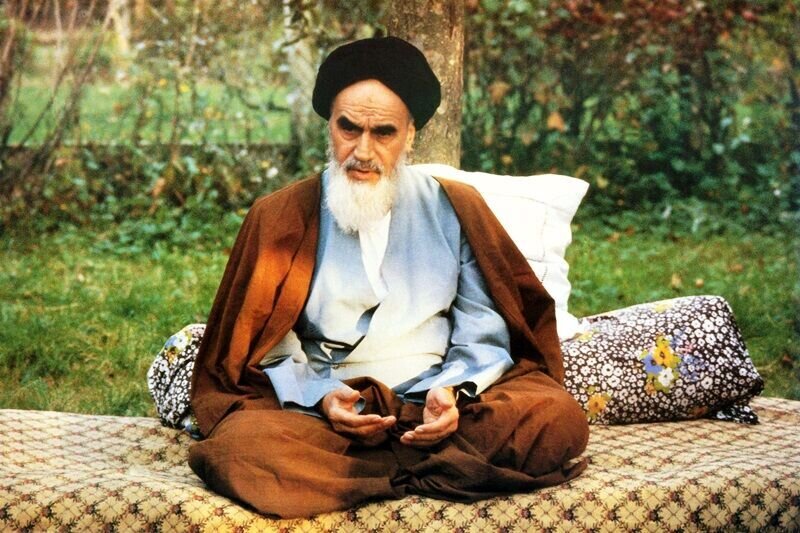The balanced foreign policy of Imam Khomeini

The desire to live as an independent nation is a fundamental aspect owned by many countries on earth. The foreign policies of Indonesia and Iran have a similar doctrine, namely the rejection of domination from any outsiders.
One of the main concepts of Iran's foreign policy formulated by Imam Khomeini is the "neither East, nor West” policy. Meanwhile, in 1961, President Soekarno of Indonesia, together with Gamal Abdul Nasser (Egypt), Jawaharlal Nehru (India), Kwame Nkrumah (Ghana), and Joseph Broz Tito (Yugoslavia) established the “Non-Block Movement.” This movement responded to the Cold War situation at that time, where two superpowers dominated the world, namely the United States and the Soviet Union.
Indonesia's foreign policy doctrine, which Indonesia's founding fathers put forward since Indonesia's independence from colonial rule in 1945, is "free and active." 'Free' implies that Indonesia does not take sides with any superpowers, which is not following the personality of the Indonesian nation. At the same time, 'active' means that Indonesia is active in establishing international relations.
A foreign policy that rejects the domination of outsiders is often identified with a 'neutral' or 'balanced' policy. The question is, what is a balanced foreign policy like? Does this mean always staying neutral no matter what? When Iran (and Indonesia) openly condemns the Israeli occupation of Palestine, is it an "unbalanced" foreign policy?
While reading Imam Khomeini's foreign policy thinking, I found a new perspective on “balance.” In a speech, Imam Khomeini said that the arrogant powers are the antithesis of the Islamic system. In other words, the Islamic system is against the arrogant system. This statement is based on Islamic values ? which strongly condemns arrogance and opposes arrogant leaders. This view is also stated in Chapter 10 of the Islamic Republic of Iran Constitution, which displays the principles of Iranian foreign policy and emphasizes the rejection of all forms of hegemonic relations.
According to Imam Khomeini (RA), the tangible manifestation of the global arrogance of the contemporary era is the American government, which is why he referred to the United States of America as the "Great Satan." In Imam Khomeini's view, the policy of anti-arrogance is a strategy to break and prevent the domination of the arrogant over the oppressed people.
The fight against global arrogance is a fight that saves humanity in general, not just Iran's national interest. As written by Naderi & Piraniye (2021), Imam Khomeini saw that the rule and domination of the arrogant get three horrible consequences for humankind. The first consequence is the oppression of the economic system. Global arrogance's dominance of the economy leaves hundreds of millions of people starving while a few live with almost unlimited wealth. People in the West have realized that they are shackled by economic domination by a handful of elites. They carry out protests and call themselves the 99% against the 1% that controls the world economy.
The second consequence, according to Imam Khomeini, is cultural oppression. Economic control by global arrogance is carried out in line with changing mindsets and lifestyles—the lifestyle of liberalism, promiscuity, and consumerism. Many nations have left their original culture and given rise to moral decadence. Society becomes intellectually, culturally, and politically weak, so the global domination of arrogance is even more gripping.
The third consequence is the disunity between the Muslim nations. According to the Imam, the global arrogance seeks to "separate and divide nations and nations in all places where they are oppressed, both Muslim and non-Islamic with their various activities." The global arrogance knows that division and separation among the oppressed nations are necessary for its domination.
Resistance towards global arrogance seems to be extreme and not neutral. But in fact, this kind of attitude can be called a "balanced foreign policy." This balance needs to be seen from the perspective of international relations (IR). In the study of IR, we recognize that there are two main perspectives in viewing the behavior of a country. The first perspective, namely realism, is based on state security, and a realist foreign policy will place the state's interests above all else.
The problem is, what values? and norms are the parameters of national interest? Is it justified if the national interest is achieved at the expense of another country or nation?
The second perspective is idealism, where the state is considered to make its decisions based on noble ideological values. The question is, can a country entirely rely on other countries' "goodwill"? Facts show the existence of global arrogance, so a government must strengthen its power to protect its security.
Imam Khomeini took a middle ground from these two perspectives. Marzband (2017) wrote, "...the strategy of Imam Khomeini in the international arena is realistic-idealism. While emphasizing peacemaking, this model stresses the use of power in the interests of humanity."
In other words, Imam Khomeini has given a third way or a middle way. Imam Khomeini introduced a new model of Islamic-based political system to change the basis of the international structure that exists today, which revolves around manipulative modernity and modern liberal democracy as the highest form of life. Imam Khomeini stressed that countries should live side by side in peace. However, when necessary, when dealing with colonialism and oppression, the use of power is indispensable. This path provides opportunities for the oppressed nations to reach their freedom.
I think a balanced foreign policy like this needs to be taken into consideration by all peace-loving countries considering that the world is very tired of wars and oppression. There needs to be a concrete joint effort to create world peace, and Imam Khomeini has offered a solution for us to think about together.
Dr. Dina Yulianti is assistant professor of International Relations Dept at Universitas Padjadjaran, Indonesia
Leave a Comment